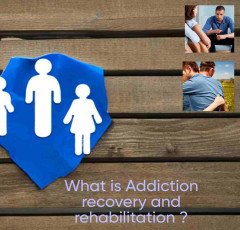
What is Addiction recovery and rehabilitation ?

Recovery from addiction and rehabilitation are practices created to assist people in overcoming drug use or other addictive
behaviors and achieving a state of long-lasting recovery.
These procedures frequently combine medical, psychological, and social interventions and can be carried out in a variety of locations, including outpatient clinics, residential treatment facilities, or community-based support groups.
Detoxification, treatment, and continuing support are frequently included in the various stages of addiction rehabilitation.
The first step in ridding the body of addictive chemicals and controlling the withdrawal symptoms is detoxification.
The usual next step is treatment, which could consist of either individual counseling, group therapy, or a combination of the two.
Therapy seeks to assist patients in understanding the root causes of their addiction, learning coping mechanisms, and creating wholesome routines and connections.
Continuous support is essential for addiction rehabilitation since it aids in maintaining sobriety and preventing relapse.
Regular sessions with a therapist or support group, involvement in sober activities, or ongoing medical supervision are all examples of this support.
Recovery and rehabilitation from addiction are difficult processes that call for a thorough, individualized strategy suited to each person's particular requirements and circumstances.
A dedication to change and a readiness to accept responsibility for one's behavior are also necessary for successful addiction treatment.
As these factors can also affect long-term recovery, it is crucial for those in recovery to address any underlying mental health conditions or trauma that may have contributed to their addiction.
There are a variety of alternative and complementary therapies, like as mindfulness exercises, art therapy, and acupuncture, that can be beneficial in addiction recovery in addition to conventional therapy and support services. These methods can aid people in coping with stress, controlling their emotions, and learning new coping mechanisms.
Medical, psychological, and social assistance are all necessary for the continuous stages of addiction treatment and rehabilitation.
Relapse is a typical and expected part of the recovery process, so it's crucial for people in recovery to remain dedicated to their sobriety and to seek assistance when necessary. But it is possible to beat addiction and lead a happy, healthy, and sober life with the correct resources, techniques, and support.
The most efficient technique for each person will rely on variables like the intensity of their addiction, their mental health, and their personal preferences. There are many various approaches to addiction treatment and rehabilitation.
Typical methods for recovering from addiction include:
Cognitive-behavioral therapy (CBT):
CBT is a type of therapy that focuses on recognizing and altering unfavorable mental attitudes and conduct that fuel addiction.
Motivational interviewing (MI):
By asking questions about one's values, beliefs, and aspirations, motivational interviewing (MI), a sort of therapy, tries to boost a person's drive to change their behavior.
Twelve-step programs:
Twelve-step programs, like Alcoholics Anonymous (AA) and Narcotics Anonymous (NA), are peer-led support groups that emphasize admitting powerlessness over addiction, giving over control to a higher power, and atoning for previous actions.
Medication-assisted therapy (MAT):
MAT uses drugs like buprenorphine or methadone to alleviate cravings and withdrawal symptoms in the early phases of recovery.
Holistic treatments:
During the healing process, holistic treatments like yoga, meditation, and acupuncture can aid in stress management and enhance general wellbeing.
A tailored strategy that takes into account each person's particular requirements and circumstances is the key to effective addiction recovery and rehabilitation.
People can beat addiction and achieve long-lasting recovery by working with a team of experts and creating a caring community.
It's crucial to understand that recovering from addiction is a nonlinear process, and that setbacks and relapses can happen.
Recovery is a lifelong path that calls for constant dedication and work. It's critical for those in recovery to establish a solid support network, make realistic goals, and place a high priority on self-care.
A wide range of online resources and digital tools are accessible for addiction recovery and rehabilitation in addition to conventional forms of therapy and support.
These include of programs made for therapy, virtual support groups, and apps designed to track sobriety.
A customized, all-encompassing approach is necessary for the complex processes of addiction treatment and rehabilitation.
People can beat addiction and live a happy, healthy, and sober life by getting expert help, creating a supporting environment, and remaining dedicated to their sobriety.
It's crucial to understand that addiction not only has an impact on the addict, but also on their family and support network.
For family members and loved ones to understand addiction and its effects on their relationships, family therapy and support groups can be useful. In addition, family members can require their own assistance and resources to deal with their own emotions and the difficulties of helping a loved one get better.
To address the stigma attached to addiction and work to lessen it via activism and education.
Finding treatment for an addiction should be viewed as a daring and courageous action because addiction is a complex disease that affects people from all areas of life.
In conclusion, medical, psychological, and social interventions along with a person's particular requirements and circumstances are used in addiction recovery and rehabilitation. A successful, healthy, and sober life is possible for people with the correct support, resources, and dedication.
Must understand that overcoming addiction involves more than just quitting the addictive behavior or drug; it also involves creating a fulfilling life in recovery.
This can entail discovering new hobbies and interests, fostering closer bonds with loved ones, and discovering one's purpose and meaning in life.
Self-compassion and forgiving practices are crucial for those in recovery, as shame and guilt can be significant roadblocks to long-term sobriety.
This entails focusing on progress rather than perfection and realizing that addiction is an illness rather than a sign of personal failure.
A personalized, all-encompassing approach is necessary for the continuous processes of addiction recovery and therapy.
Individuals can beat addiction and live a full, productive life by getting expert assistance, creating a caring environment, and placing a high priority on self-care.
It's important to note that addiction recovery and rehabilitation do not simply relate to drug misuse.
They may also be used to treat behavioral addictions including sex, internet, and gaming addictions. Similar recovery principles and methods include treating underlying psychological and social issues as well as creating new support networks and coping mechanisms.
It's crucial to understand that there is no one way that works for everyone when it comes to addiction treatment and that different methods may be more effective for various people. Finding the ideal fusion of interventions and support may involve some trial and error.
A customized, all-encompassing approach is necessary for the complex, continuous process of addiction recovery and rehabilitation.
People can overcome addiction and have satisfying, healthy, and sober lives by getting professional help, creating a caring community, practicing self-compassion and forgiveness, and celebrating success.
To emphasize that treating an addiction is not a one-time thing or a fast fix.
To stay sober and avoid relapse, constant effort, dedication, and support are needed. People in recovery frequently experience difficulties and setbacks, so it's critical to get support when required.
Recovery from addiction involves not just putting an end to the addictive behavior but also dealing with the underlying psychological and social causes of addiction.
To address past trauma or mental health problems, this may entail treatment and counseling in addition to learning new coping mechanisms and establishing wholesome routines.
Additionally, the journey of addiction rehabilitation is not simply a personal one but also a social one.
Creating a solid network of family, friends, and peers can offer crucial support and accountability during the healing process.
A personalized, all-encompassing strategy is necessary for the complex, continuous process of addiction recovery and rehabilitation.
People can overcome addiction and have satisfying, healthy, and sober lives by getting professional help, creating supportive communities, treating underlying issues, and sustaining continuing support.
The goal of addiction recovery and rehabilitation is to improve society overall, not only for the person who is recovering from addiction.
This entails lessening stigma and prejudice against persons who are battling addiction and promoting laws and initiatives that aid in addiction treatment and recovery.
For communities and organizations to offer access to effective and inexpensive addiction treatment
as well as support services for those who are addicted and their families. Resources including support groups, counseling, job training and placement services, and housing aid can fall under this category.
To be conscious of the fact that rehabilitation and recovery from addiction are processes that might change over time.
As people make progress in their recovery, they could run across new obstacles and chances for development, and they might need to change their strategy to keep their sobriety and wellbeing.
A individualized, comprehensive approach to addiction recovery and rehabilitation is necessary, as is the support and sympathy of society as a whole.
We can build a more accepting and healthy society for all by promoting addiction treatment and support programs, minimizing stigma and prejudice, and acknowledging the dynamic nature of addiction recovery.
It's important to note that treating the physical health repercussions of addiction, such as liver
damage, starvation, or other medical conditions, can be a part of therapy and recovery from addiction. This could entail receiving medical care, including detoxification, medication-assisted therapy, or managing co-existing medical issues.
Addressing the social and environmental causes of addiction can be a part of addiction therapy and rehabilitation.
Addressing problems like poverty, homelessness, or a lack of access to chances for education or employment may fall under this category.
It's important to understand that for some people, spiritual or religious elements can play a role in addiction recovery and rehabilitation.
This could entail discovering a spiritual or religious practice that gives one's life meaning and purpose, or asking a spiritual or religious group for advice and support.
Recovery from addiction and rehabilitation are lifelong processes that demand dedication and assistance over time.
To avoid relapse and maintain their wellbeing, people in recovery must continue to practice self-care, look for ongoing support from their community, and lead healthy lifestyles.
A customized, holistic approach is necessary for the complex, varied process of addiction recovery and rehabilitation.
We can develop a more empathetic and successful approach to addiction treatment and recovery by addressing the physical, psychological, social, and spiritual elements of addiction and by fighting for supporting policies and programs.
To be aware that, depending on the requirements and circumstances of the individual, addiction treatment and rehabilitation might involve varying amounts of care and support. For more severe or complex conditions, this might range from outpatient therapy and support groups to residential or inpatient care.
In order to help people overcome addiction and learn new coping mechanisms, residential or inpatient treatment often entails a structured program with intensive therapy, support groups, and other services.
Detoxification, medication-assisted therapy, behavioral therapies, and holistic services like yoga, art therapy, and mindfulness meditation are some examples of this.
Individuals in recovery, as well as their families and loved ones, can get continued assistance via outpatient treatment programs and support groups.
This could entail support groups, group treatment, individual counseling, and other sources to assist people in staying their recovery.
For people and their families to collaborate with skilled addiction treatment specialists to choose the best possible level
of assistance and care for their requirements. To meet the needs and circumstances of the individual, a variety of interventions and services may be combined.
Must understand that overcoming addiction is only one aspect of addiction recovery and rehabilitation;
Another is building a meaningful life in recovery. This could entail rediscovering interests and pastimes, creating wholesome connections, pursuing educational or professional objectives, and identifying fresh ways to give back to society.
A multitude of therapies and support services are needed for the complex, customized process of addiction recovery and rehabilitation.
People can overcome addiction and lead full and healthy lives in recovery by engaging with trained addiction treatment specialists and being dedicated to continuous self-care and support.
It is important to recognize that oppressed groups, such as persons of color, LGBTQ+ people, and those who live in poverty, may find it extremely difficult to recover from addiction and to get rehabilitation. These populations may also experience prejudice, a lack of insurance coverage, or restricted access to resources as obstacles to receiving high-quality addiction treatment and support services.
It's critical for society to confront these inequities and move toward greater equity in addiction assistance and treatment.
This may entail fighting for laws and initiatives that prioritize eradicating stigma and discrimination, providing assistance for underserved areas, and facilitating access to addiction treatment.
To be aware of the fact that addiction frequently co-occurs with other mental health issues including trauma, despair, or anxiety.
Dual diagnosis or co-occurring disorders like these call for specific care and assistance in order to properly treat both diseases.
A individualized, comprehensive approach is necessary for the complicated process of addiction recovery and
rehabilitation, as well as access to high-quality addiction treatment and support services.
We can develop a more helpful and successful approach to addiction treatment and recovery for all people and communities by working toward greater equity and reducing stigma and discrimination.
The involvement of family and social support in addiction treatment and rehabilitation is another crucial factor.
Families and other close relationships can suffer greatly as a result of addiction, therefore it's crucial that they take part in the healing process.
Families and loved ones can learn about addiction, develop coping mechanisms, and seek to mend healthy relationships with the aid of therapy and support groups. This may entail addressing problems with boundaries, trust, and ommunication.
Peer and community social support is important for the healing process.
Support organizations like Alcoholics Anonymous or Narcotics Anonymous offer people in recovery a secure and encouraging environment where they can interact with others who are going through comparable situations.
The socioeconomic and environmental causes of addiction, such as deprivation, unemployment, and a lack of access to healthcare or education, must also be addressed. Advocating for laws and initiatives that deal with social and economic inequalities as well as offering assistance and support to those afflicted by addiction may be part of the solution to these problems.
A broad strategy is needed for addiction treatment and rehabilitation in order to address the environmental, social, psychological, and physical variables that lead to addiction. We may develop a more efficient and sympathetic approach to addiction treatment and recovery by integrating families and close friends in the process, offering social support, and tackling larger social and economic challenges.
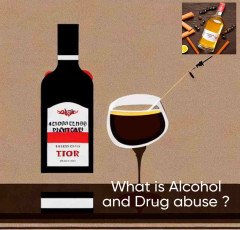
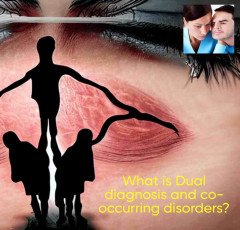

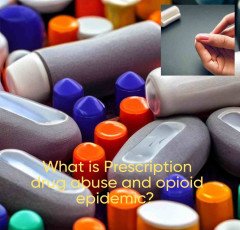

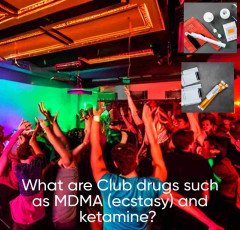









 Amazon Best Selling Products
Amazon Best Selling Products  Graphics & Design
Graphics & Design  Creative Brief For Video Shoot
Creative Brief For Video Shoot  1150+Trendy kids coloring pages Bundle
1150+Trendy kids coloring pages Bundle  NordVPN
NordVPN  NordLocker
NordLocker  SEO Checklist
SEO Checklist  Artificial Intelligence
Artificial Intelligence  Unlimited access to classes on illustration, photography, design, film, music
Unlimited access to classes on illustration, photography, design, film, music  Only For The United States
Only For The United States  SOFAS
SOFAS  Sennheiser
Sennheiser  ASUS Laptop
ASUS Laptop  NordPass
NordPass  Top Rated From Amazon
Top Rated From Amazon  Best Sellers On Amazon
Best Sellers On Amazon  Online Marketing
Online Marketing  Online Technology Classes
Online Technology Classes  ELECTRONIC ACCESSORIES
ELECTRONIC ACCESSORIES  RPM 3.0
RPM 3.0  Favorite Company (Cuelinks)
Favorite Company (Cuelinks)  Best Home Appliances
Best Home Appliances  All Wireless Products
All Wireless Products  The Secret Email System
The Secret Email System  Unreal Engine 5 For Beginners Learn The Basics Of Virtual Production
Unreal Engine 5 For Beginners Learn The Basics Of Virtual Production  Men Clothing
Men Clothing  BEST SELLER TOP10
BEST SELLER TOP10  ASPINAL LONDON
ASPINAL LONDON  Best Robotic Vacuum Cleaners
Best Robotic Vacuum Cleaners  One World Collection
One World Collection  TitTok Revolution
TitTok Revolution  Hot Bags For Pain Relief
Hot Bags For Pain Relief  Acer Laptop
Acer Laptop  Best Selling Books
Best Selling Books  Smart Doorbell
Smart Doorbell  Women Fashion
Women Fashion  The Click Engine
The Click Engine  Hello Theme
Hello Theme 
















